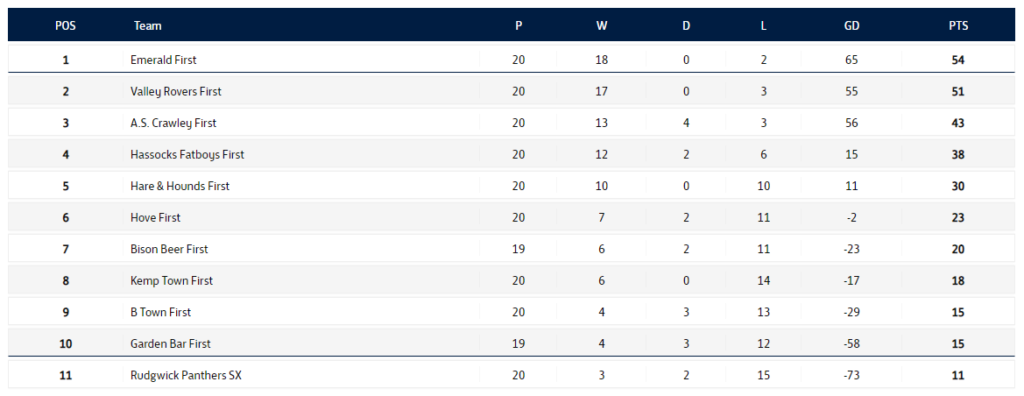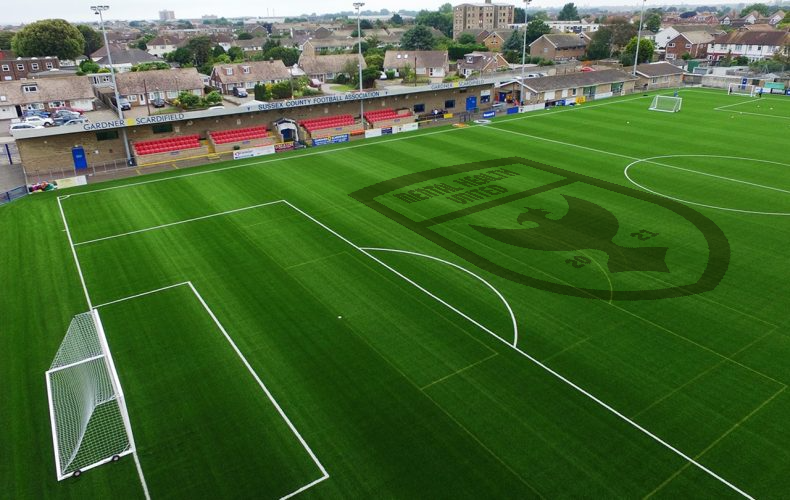You’ve decided to start a Sunday League football team. Welcome to your new second job. It’s one which will have highs, lots of lows, your phone going off constantly, your spare time chasing players for money… but ultimately you’ll be responsible for the highlight of 11-16 peoples week. With a good win behind you it can be a very rewarding hobby job.
What is Sunday league football and how does it work?
Sunday league football is organised amateur football that is played on a Sunday (no way!). Historically it has also been known as pub football, mostly because teams were made up from groups of friends who all drink in the same pub, and in most cases the pub would act as a sponsor.
In more recent times, thanks to social media and platforms such as Youtube giving teams more exposure, the standard has been on the increase.
Typically leagues are regional meaning that teams don’t have the travel involved that the pro and semi pro game require.
How many games in a season?
The number of fixtures per season will widely vary per league so here’s a sample of what you can expect across a season:
- You are entered into a division with 12 teams who all play each other twice. That means 22 league fixtures.
- 2 to 3 cup competitions, depending on how successful you are will add 3-10 cup games to your season if you get a decent cup run going
- Over the season you could end up playing 20-30 games


When does the Sunday league season start and end?
Typically the Sunday league season in the UK runs from the beginning of September and will end towards the end of April / beginning of May.
This will vary from league to league, and region to region, often depending on how many games got postponed during the winter months.
Most teams will start their pre-season in July, running training one evening a week, maybe an additional one on a Sunday morning, and then play games on each Sunday throughout August to get themselves match sharp.
How to register your Sunday league team?
Once you’ve got a keen group of guys or girls your first step is to speak to your local FA. They will in turn put you in touch with the relevant league for your area. If you already know the league you wish to join, you can normally reach out to them directly either via email or their social media accounts.
In turn they will walk you through the costs to join the league along with supporting you in getting affiliated with your local FA. Affiliation is required to enable you to register players in the league and to provide insurance for your club.
Do you need a licence to coach Sunday league?
No. However, if you want to create the best environment for your players, it’s recommended you complete the FA Playmaker (free) and FA Introduction to Coaching (FA Level 1) (~£160).
Both of these offer a great introduction to coaching a football club, along with information on how to structure practice, manage player welfare and gives access to the FA’s Emergency First Aid in Football course.
Do Sunday league teams need insurance?
Yes. Football clubs need two types of insurance, both of which are normally handled with affiliation to your local FA.
- Personal Accident Insurance (PAI) – this covers your players in the event of an injury during training or a match
- Public Liability Insurance (PLI) – this covers damages to any properties or persons not involved in the game (e.g. a spectator)
The cost of both of these combined for the season is ~£100. If your FA doesn’t provide either of these Bluefin Sport Insurance are one of the leading providers in the UK.
How much does it cost to run a Sunday team?
This may come as a surprise, but the total costs for running a team that trains once a week and plays a match once a week will be around £4,000 to £6,000!
Below we explore how we got to that number.
Pre-season costs
- FA Affiliation – £60
- League Affiliation – £100 (+ £50 deposit)
- Insurance – £100
- Match day kit – £500 to £1000
- Training equipment – £200
- First aid kit – £50
- Nets and net pegs – £40 to £80 per pair
- Miscellaneous – £50 to £100
- Linesman flags – £5 to £10
- Captains armband – £3 to £5
- Poo bags £5
- Electrical tape – £20
- Rubbish bags – £2
- Total – £1,000 to £1,800


Training Facilities
The cost of facilities will depend on the area you live in. It very much seems to be impacted by supply and demand. Through the summer you’ll be able to train for free at the local park and recreation ground.
As the nights start to draw in though, you’ll need somewhere with floodlights. In most places you’ll be looking at around £50 a week to hire a third of a pitch for an hour. You can find facilities using sites such as schoolhire.co.uk and pitchfinder.org.uk. Also check out your local 5 and 6 a side facilities if you just want to have a kick about and keep the lads moving.
This means if you pay for facilities for 30 weeks of the year you’re looking at £1,500.
For some clubs, training just isn’t financially viable. In this case it is worth looking to share facilities with another team, or have a squad that only rocks up on match days. This however can make it harder to attract new players.
Match Day
- Pitch hire – £50-£150 / home game
- Match officials (referee only) – £40 / home game
Across 15 home games per season this would total £1,350 to £2,850 per season, depending on the cost and quality of your home ground.


Fines
Here are some examples you and your players will come across during the season:
- Yellow Card – £12
- Red Card – £35+
There are a whole host of additional on and off the field fines for items such as not attending the AGM or late submission of match reports. It’s essential if you plan to run a Sunday league football team that you’re prepared to stay on top of any admin. Speak to the league you plan to enter for a full breakdown of conditions and fines that you hopefully avoid.
How many players should my club sign?
The two biggest risks to Sunday league teams are:
- Not being financially organised
- Not being able to field enough players
If you’re lucky enough to have a group of reliable players, none of which ever work weekends, don’t have families, are never hung over etc etc, then a squad of 20 should be plenty.
But the reality is, once you tally injuries and players living their lives, over the course of the season you might need to have 25 to 30 players registered.
It’s almost guaranteed that for the first game of the season you will have 25 players available. But come the depths of January you will need a few more players on your books, even if some of those are only there to help out when you’re a little short.
How much should I charge my players?
Let’s use the following scenario. You’ve worked out your costs for the season will be around £5,000 for the season.
The outlay is as follows:
- £1,500 before a ball is even kicked (pre-season admin)
- £1,500 for 30 training sessions
- £2,000 for 15 home games
You’d need to charge the following for a squad of 25 players.
- Signing on fee to cover pre-season admin – £60 / player
- Assuming a minimum of 10 players show up – £5 / player per session
- Assuming a bare 11 per match – £6 / player per game (both home and away)
You need to charge for both home and away to cover home game costs. Alternatively you could charge £12 per home game. We’d recommend charging the same if you have more players as this will help boost the bank balance and buy more equipment such as replacement balls.
Do Sunday league managers get paid?
No. For the luxury of doing all of the above the only payment you might get is a pint or two from one of the players.
Further reading
If you’d like more insight into the “human” element of running a Sunday league team, this article on iamjimtaylor.com is a nice light hearted read.
